Additional Foundational Reading
Rudolf Steiner's Five Basic Books
In addition to those selections we have outlined as "essential" readings of Rudolf Steiner's foundational books, it is important for a practitioner to read and study all of Steiner's five basic books. Rudolf Steiner intended these carefully written volumes to serve as a foundation to all of the later, more advanced anthroposophical writings and lecture courses.
The Philosophy of Freedom (GA 4) 1894
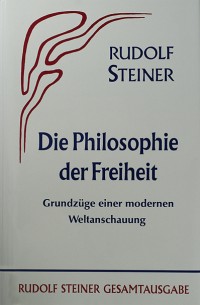
Steiner's most Important philosophical work deals both with epistemology, the study of how man knows himself and the world, and with the issue of human freedom. In the first half of the book Steiner focuses on the activity of thinking in order to demonstrate the true nature of knowledge. There he shows the fallacy of the contemporary idea of thinking, pointing out that the prevailing belief in the limits to knowledge is a self-imposed limit that contradicts its own claim to truth.
The possibility for freedom is taken up in the second half of the book. The issue is not political freedom, but something more subtle; freedom of the will. There are those who maintain that man's thoughts and actions are just as determined as a chemical reaction or a honey bee's behaviour. Steiner points again to the activity of thinking, from which arises the possibility of free human action.
Christianity as a Mystical Fact (GA 8) 1902
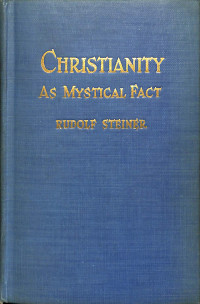
This early, fundamental work shows how Christianity arose out of what was prepared in the pre-Christian Mysteries. Christianity, however, was not merely a further development of what existed in these Mysteries but something unique and independent. From an examination of the ancient Mysteries, Steiner goes on to discuss the Gospels, the Lazarus miracle, the Apocalypse of St. John, Jesus and his historical background, and more. This book is a foundation for what Steiner later more fully develops concerning the nature of Christ and Christianity.
Theosophy (GA 9) 1904
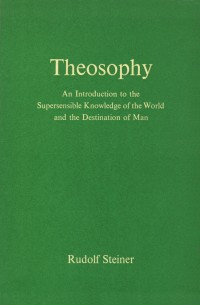
Theosophy begins by describing the threefold nature of the human being: the body, or sense-world; the soul, or inner world; and the spirit, or universal world of cosmic archetypes. A profound discussion of reincarnation and karma follows, concluding with a description of the soul's journey through regions of the supersensible world after death. The book closes with an outline of the path to higher knowledge.
How to Know Higher Worlds (GA 10) 1904
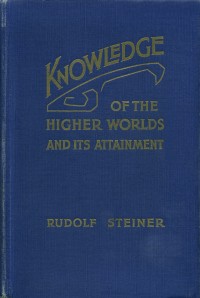
Rudolf Steiner's fundamental work on the path to higher knowledge explains in detail the exercises and disciplines a student must pursue in order to attain a wakeful experience of supersensible realities. The path described here is a safe one which will not interfere with the student's ability to lead a normal outer life.
Occult Science (GA 13) 1910
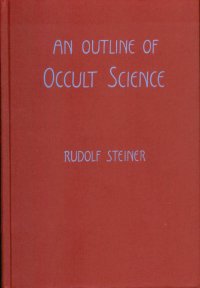
This work of nearly 400 pages begins with a thorough discussion and definition of the term “occult” science. A description of the supersensible nature of man follows, along with a discussion of dreams, sleep, death, life between death and rebirth, and reincarnation. In the fourth chapter evolution is described from the perspective of initiation science. The fifth chapter characterizes the training a student must undertake to become an initiate. The sixth and seventh chapters consider the future evolution of the world and more detailed observations regarding supersensible realities.
Esoteric Development
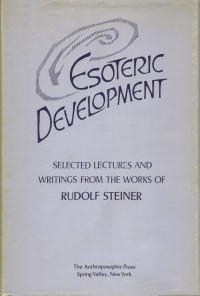
In this collection of Steiner's lectures and other writings, Steiner depicts the experience of his non-mystical, scientifically clear path to a cultivation of inner faculties for experiencing super-sensible realities.
Topics covered include the "six basic exercises," fasting, suitable content and practical requirements for meditative training, changes and stages of inner awareness, the role of love in acquiring higher knowledge, the development of higher sense organs or chakras, and the three types of esoteric paths: Oriental Yoga, Christian-Gnostic, and European Rosicrucian.
Other Books by Rudolf Steiner
While we offer thousands of articles published by Steiner as well as transcriptions of notes taken at his lectures, we highly recommend reading his books. They were written and reviewed by him for publication and have the least room for error. Unfortunately, he wrote them in German, so one who is not proficient in that language must rely on translations. We now offer a comparison of each translation to the original German text as well as a literal, automated translation of the German for research and verification purposes. Find a complete list of Steiner's books in the linked heading above as well as in the top and bottom navigation of each page of our site.

